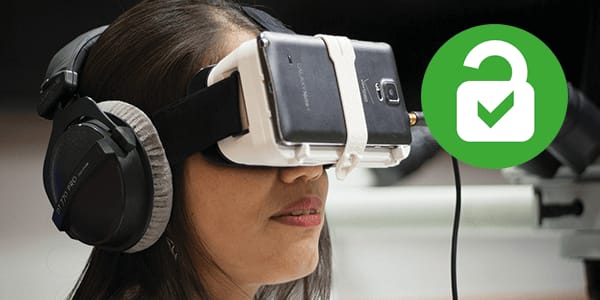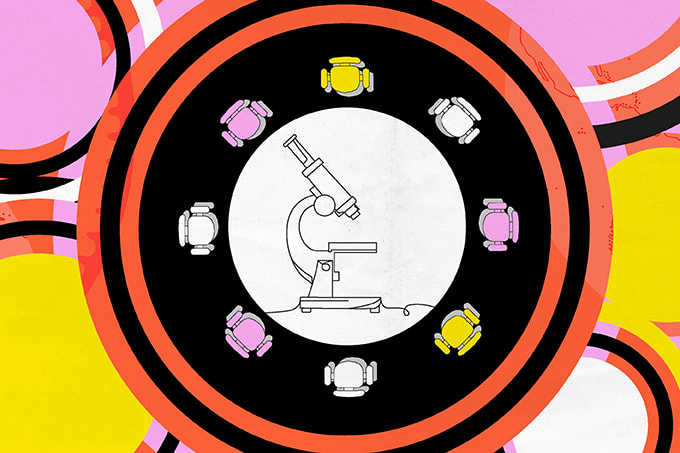For more than a decade, I have worked in more than a dozen hospitals and laboratories as a “neither.” In healthcare writ large, but particularly the laboratory, there is a vastly misunderstood in-between into which highly trained, specialized practitioners fall: neither a doctor nor a laboratorian in the traditional understanding. We are in nearly every community hospital, university, academic facility, and reference laboratory in the United States, and we have an expanding international presence. If an organization recognizes our existence as a credentialed specialty not synonymous with any other laboratory role, we are nevertheless often lumped in with any number of other laboratorians for practical purposes – a situation that leaves us without clear definition in the institution’s organizational structure.
We are, by education and training, experts in macroscopy. Depending on how far afield of our professional title an employer may stray, you may know us as many loosely applicable descriptors, but we are, in title and in certification from the American Society for Clinical Pathology, pathologists’ assistants.

Professionally, my experience is one of belonging to neither the category of provider nor the category of laboratorian. We are most often managed by laboratory administration, but simultaneously beholden to the pathology group (whether a separate business entity or internal to the larger organization). We serve two masters, yet neither is entirely clear on our place in the healthcare hierarchy.
Because our education, experience, and certification place us in a higher pay grade than some laboratory supervisors or managers who may be laboratorians by training, we not infrequently face the difficulty of earning somewhat more than our bosses. As such, our administration may be reluctant to negotiate a competitive rate of pay or provide us with benefits or perks that they may readily offer to a non-laboratory provider.
Some organizations define us as non-exempt hourly employees, similar to a medical technologist or cytotechnologist in the lab, whereas others define us as exempt salaried employees (as they would a physician’s assistant or other advanced practitioner). Some hospitals group us with physician’s assistants and provide employment perks commensurate with those afforded to other advanced practitioners. These institutions may also require us to be credentialed in the same category as those who are free to dispense controlled substances or – my personal favorite – require us to know the Association of Operating Room Nurses guidelines for donning, doffing, and scrubbing in for sterile procedures… for no practical reason.
We are more than grossing techs (said with all the respect due to the histotechnologists and others who gross large volumes of non-complex specimens at some facilities). Our education, practical training, and experience allow us to be expert teachers in the gross room for resident physicians, medical students, medical laboratory science students, and any number of other learners. We provide educational lectures and tours to students, other laboratorians, and visitors. Our expertise and attention to detail compel us to contact providers, surgeons, nurses, or administrators when we suspect a specimen is suboptimal or compromised or an unexpected finding may necessitate additional specimens or testing.
Frequently, we serve in official or unofficial administrative roles – writing procedures, collecting data, creating maintenance logs, inventorying, preparing for inspections by CAP or the Joint Commission, and so on. Some of us are technophiles and work with IT to troubleshoot the LIS/HIS, optimize voice transcription software utilization, or bang on hardware in the gross room. We are the backbone of a well-run gross room and morgue.
If you are a pathologist or laboratory administrator who has never heard of us, there is no shame in that. It seems as if all pathologists’ assistants must explain our existence on a daily basis. We joke that even our families fail to understand what we do, noting that the only aspect anyone is interested in is “cutting up bodies.”
If you work with a pathologists’ assistant, learn more about his or her experience, expertise, and potential as a highly trained specialist beyond simply grossing. If you want to learn more, the American Association of Pathologists’ Assistants website (pathassist.org) includes abundant information about our profession.
Most of all, thank you to those in pathology who acknowledge our daily efforts to make the pathologists’ jobs and lives easier. A content pathologist is the sign of a competent and successful pathologists’ assistant.




